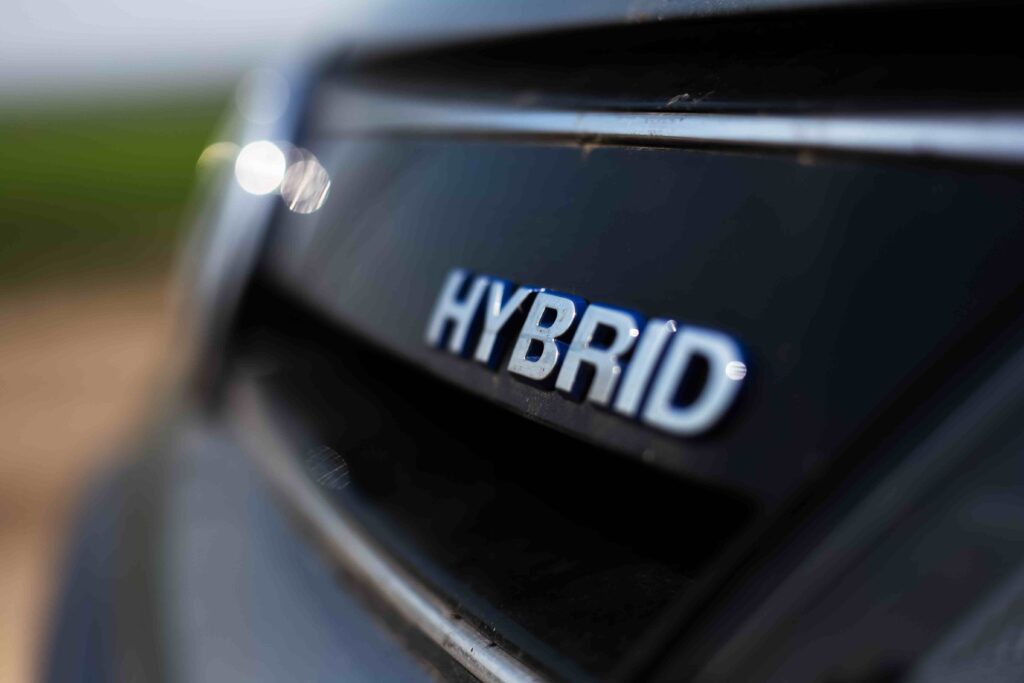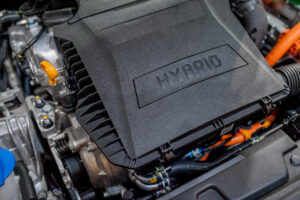Understanding Hybrid Vehicles
Understanding hybrid vehicles is important if you’re thinking of buying one. Hybrid cars combine a gas-fueled engine with one or more electric motors powered by a battery. These two power sources work together to increase a vehicle’s fuel economy. A regular hybrid never needs to be plugged in, but it can only drive short distances and at low speeds on electric power alone.
How Hybrid Cars Work
Today’s hybrids come in all shapes and sizes, from compact hatchbacks to three-row SUVs. Many outperform their nonhybrid counterparts in CR’s road tests and do well in our reliability rankings as well.
Hybrid Technology Explained
Hybrids combine a gasoline engine, an electric motor, and a battery pack. The electric motor drives the car at low speeds or under low power demands, while the gas engine kicks in at higher speeds where it’s more efficient and makes most of its power, or when you need to accelerate quickly or climb hills. Hybrids can drive on electric power alone for short distances, but often the engine and motor operate together. There’s no need to plug the car in, because the gas engine recharges the car’s battery.
Hybrids are also equipped with regenerative brakes that capture momentum to create electricity as the car slows down or coasts. That electricity is also used to recharge the battery. By comparison, a regular car’s brakes just create friction that turns into unusable heat.
By supplementing the engine with an electric motor, the gas engine doesn’t need to be as big in order to achieve an overall combined horsepower rating that’s comparable to a gas-only car, which further increases efficiency.
Pros And Cons Of Hybrid Technology
Hybrid vehicles can be a great option for high-mileage city drivers or environmentally conscious consumers, but they are not always the best choice for everyone. Understanding the differences between gasoline-powered, electric and hybrid vehicles will help you choose the best vehicle for your lifestyle.
Pros
- Lower Environmental Impact. Hybrid cars are normally promoted as a green option. They offer the following benefits over traditional gas-powered cars.
-
Lower CO2 emissions. The tailpipe emissions of standard cars are reduced, resulting in a reduced carbon footprint.
-
Fewer other pollutants. Reduced methane, nitrous oxide and other greenhouse gas emissions compared with standard cars.
-
Greater fuel efficiency. Less fuel is needed to propel hybrid vehicles because of the electric power source option, generally resulting in improved fuel efficiency.
-
Less dependence on fossil fuels. Standard gas cars rely totally on fossil fuels while hybrid cars have a high-voltage battery, electric engine and regenerative braking technology to recharge the system.
-
- Fewer Maintenance Requirements. The reduced wear and tear on a hybrid car’s combustion engine means that your vehicle may require less maintenance and fewer expensive repairs than a standard one. However, there is no guarantee of lower maintenance costs as there are many other things that can affect a car besides engine trouble.
- Lower Running Costs. More electric-based mileage and higher-efficiency engines mean fewer trips to the gas station to fill up, which is better for the wallet. How much you will save depends on your driving habits, the model and your location, but most drivers can save money each month.
- Favorable Tax Incentives. The federal government currently offers a favorable tax credit for plug-in hybrid vehicles. This isn’t yet available for HEVs but can amount to up to $7,500 for PHEVs depending on the model of the car you buy and your tax status. State and local incentives may also apply.
- Higher Resale Value. Hybrid cars are growing in popularity and the recent rises in the price of gasoline have helped to spark interest in cheaper alternatives and more fuel-efficient cars. With demand for HEVs so high, you can expect a decent resale value when you come to sell it, providing current trends continue.
Cons
- Higher Upfront Costs. The initial purchase or lease price of a hybrid vehicle may well be higher than the standard option. The difference is reducing as manufacturing costs are streamlined but there’s still a difference. While you can expect to save money with tax incentives and lower running and maintenance costs, you’ll need to factor in the initial price differential.
- High Repair Costs. The high-voltage system necessary for hybrid cars may be more expensive to fix if it develops problems. High-voltage batteries usually cost thousands of dollars so you wouldn’t want to replace one very frequently. Fortunately, many batteries last more than 150,000 miles but the inverters, electric motors and improved cooling systems also add a level of complexity to repairs when compared with standard car systems.
- Higher Insurance Costs. Hybrid cars can be more expensive to insure compared with similar size/specification standard gas versions. Fuel savings may be offset with higher insurance costs as insurance companies factor in that most HEV drivers cover long distances and are therefore considered higher risk.
- Slower Acceleration. You probably won’t be able to match the acceleration of a standard gas-powered car in your hybrid car. Generally speaking, hybrid vehicles have slower top-end acceleration than traditional models.
- Fossil Fuel Dependence. You may use fewer fossil fuels in a hybrid car, but you are still dependent to some degree on them. With an electric vehicle, you use no gas though you are still likely to use some fossil fuels indirectly depending on the source of electricity you plug into.
Popular Hybrid Models On The Market
Today’s hybrid cars have a lot to offer, pairing the drivability and convenience of regular cars with simply outstanding fuel economy.
Honda Accord Hybrid
The redesigned Honda Accord Hybrid improves on what was already one of the best hybrid cars around. The Accord Hybrid has an upscale and spacious cabin, slick tech features, refined handling and a thrifty, yet energetic hybrid powertrain.
Hyundai Sonata Hybrid
The Hyundai Sonata Hybrid is a standout in its class. It offers fantastic fuel economy, spacious seating and an upscale cabin. However, if it’s sportiness you’re after, you won’t get it with this Hyundai. The Sonata Hybrid is more of a comfortable cruiser than a drag racer.
Toyota Camry Hybrid
The Toyota Camry Hybrid is a well-rounded and well-built sedan with impressive fuel efficiency, a comfortable interior, a smooth ride and straightforward infotainment tech. It isn’t especially exciting to drive, but its flaws are mostly minor and fail to derail this impressive hybrid.
Hyundai Elantra Hybrid
The Hyundai Elantra Hybrid offers stellar fuel economy, a peppy powertrain, balanced ride and handling and a feature-packed, spacious interior. The cabin is a bit plasticky, and the gas engine can be noisy, but there’s still a lot to like about this Hyundai hybrid.
Toyota Prius Prime
The Toyota Prius Prime is a sleek yet practical fuel sipper that doesn’t compromise on performance. This plug-in hybrid is a marked improvement over its predecessor thanks in part to solid driving dynamics, sharp styling and sufficient passenger and cargo room for commuting and weekend road trips alike.
Toyota Prius
The Toyota Prius is a sleek hybrid with great fuel economy, decent power and responsive handling. The infotainment system is intuitive and packed with features, but the Prius is held back by a tight second row and an unimpressive cargo hold.
Toyota Corolla Hybrid
The Toyota Corolla Hybrid isn’t exactly awe-inspiring, but it’s a high-value car with a long list of standard features and good fuel economy. Rear-seat space is a tad limited, but the Corolla Hybrid effectively accomplishes its mission as practical A-To-B transportation.
Jeep Wrangler 4xe
The Jeep Wrangler 4xe electric hybrid power gives you the freedom to go long distances without range anxiety. Whether you want to take an off-road adventure or simply get around town on all-electric power, the Wrangler 4xe features a manufacturer’s estimated 49 MPGe rating.
Toyota Crown
As the Toyota Avalon bows out, the Toyota Crown replaces it in the U.S. automotive market. This lifted hybrid sedan is a unique offering that doesn’t have any direct competitors, but its raised seating position and sloped roofline make the cabin somewhat tight. Still, it has a balanced ride, hybrid efficiency and good tech.
Honda Accord Hybrid
Fresh off a redesign the Honda Accord Hybrid remains an upscale and accessible hybrid car that’s fuel-efficient, easy to drive and easy to love.






